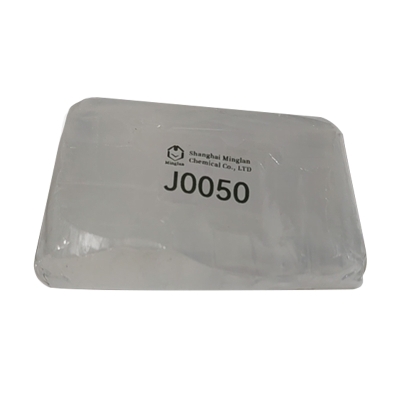-
Categories
-
Pharmaceutical Intermediates
-
Active Pharmaceutical Ingredients
-
Food Additives
- Industrial Coatings
- Agrochemicals
- Dyes and Pigments
- Surfactant
- Flavors and Fragrances
- Chemical Reagents
- Catalyst and Auxiliary
- Natural Products
- Inorganic Chemistry
-
Organic Chemistry
-
Biochemical Engineering
- Analytical Chemistry
-
Cosmetic Ingredient
- Water Treatment Chemical
-
Pharmaceutical Intermediates
Promotion
ECHEMI Mall
Wholesale
Weekly Price
Exhibition
News
-
Trade Service
Entering June, the international oil market ushered in a wave of ups and downs
.
With the European Union announcing that it will implement the ban on the import of Russian crude oil by sea, Russian crude oil products have been subjected to the most severe "blockade" in Europe to date, which not only further tightens the already tight supply, but also forces Russia to adjust the structure of
crude oil exports.
"OPEC+" increased production ahead of schedule
The OPEC+ production reduction alliance said in a statement that the production adjustment originally planned for September will be advanced to July and August, and the scale of crude oil production increase will increase from the current 432,000 barrels per day to 647,000 barrels per day, an increase of nearly 50%, and plans to hold a monthly meeting of production cuts in advance at the end of June to assess the trend
of the international oil market at any time.
The Financial Times pointed out that this is the first additional production increase since the "OPEC+" production reduction alliance reached an agreement to cut production in April 2020, marking the increasingly tight
supply of the global crude oil market.
It is reported that Saudi Arabia and the UAE will be responsible for most of the increase in
production.
Saudi Arabia said it would work hard to overcome the supply gap
in the market after the "blockade" of Russian crude oil.
According to OPEC+ data, Russia's crude oil production fell nearly 9% in April, and it is almost impossible
to rely on OPEC, Canada and other countries alone to fill the gap.
In addition, from the geographical point of view, Europe is the most affordable to buy Russian crude oil, importing crude oil from Canada, the United States, and the Gulf region, and the transportation and insurance costs are quite high
.
It is worth noting that Russia's influence in the Gulf region may also bring uncertainty to the direction of the oil market
.
It is reported that long before the "OPEC +" reached the agreement to increase production, Russian Foreign Minister Sergei Lavrov has visited the Gulf countries in May and held collective talks with the foreign ministers of the Gulf countries, and the Gulf countries represented by Saudi Arabia have made it clear that they will not participate in any sanctions
against Russia.
Saudi Energy Minister Prince Aziz has publicly stated that Saudi Arabia has always regarded Russia as a key energy partner
.
The "oil ban order" may lead to increased market competition
On June 2, the European Union officially passed the sixth round of sanctions against Russia, the most notable of which is the ban on the import of Russian crude oil by sea before the end of the year and the exemption of crude oil transported by pipeline, which will reduce the EU's crude oil
imports from Russia by about 90% by the end of the year.
In this regard, Mikhail Ulyanov, Russia's permanent representative of international organizations in Vienna, said that the ban on the import of Russian crude oil will regurgitate European countries
.
It is reported that the EU and the United Kingdom are also considering reaching an agreement banning the insurance of ships transporting Russian crude oil, aiming to further weaken Russian crude oil trade
.
However, Daniel Yergin, global vice president of S&P Global, said: "If Europe prohibits the insurance of tankers carrying Russian crude oil, it may intensify the competition for crude oil in the region, which in turn will lead to increased
market turmoil.
" ”
On June 6, Medvedev, vice chairman of the Russian Federal Security Council, said: "The ban on the insurance of Russian crude oil carriers will lead to difficulties in transporting crude oil to third countries, but this problem can be solved
by signing intergovernmental agreements with third countries and providing state guarantees.
" ”
The Financial Times pointed out that European countries do not have the same degree of dependence on Russian crude oil, and the "oil ban order" may lead to "distortion"
of competition in Europe's internal crude oil trade market.
In fact, since the Russian-Ukrainian conflict, the amount of Russian crude oil imported by Europe through pipelines has increased, mainly because European buyers have used discounted prices to rush to stock up on goods
before the "oil ban order".
A serious imbalance between supply and demand will boost oil prices
The broader sanctions launched by the European Union against Russia have led to an accelerated reduction in the supply of crude oil markets, further boosting the strengthening
of international oil price shocks.
On June 7, Brent crude oil has returned to $120/bbl, and the US WTI price is also approaching $120/bbl
.
Wall Street investment banks even generally believe that WTI prices may return to the high of $130/bbl
.
Energy market research firm Sankey Research pointed out that the relatively modest increase in production of OPEC+ in July is not enough to boost the oil market and cannot stop oil prices from continuing to "soar"
.
The US CNBC news network said that "OPEC +" has failed to complete the production increase target in the past few months, and the latest production increase target of nearly 650,000 barrels / day will still fall short
without surprise.
Francisco Blanch, head of commodities and derivatives strategy at Bank of America, said Saudi Arabia is the only OPEC country
with more spare capacity.
"Our gasoline and diesel prices have hit a record, and now, crude oil prices are hitting record values, maybe even reaching $
185 a barrel.
"
In fact, Saudi Arabia has been hesitant to increase production quickly and sees spare capacity as the last line of defense
against serious imbalances in the oil market.
Christyan Malek, head of research for JPMorgan's oil and gas industry, said Saudi Arabia remains cautious about using all spare capacity and believes it needs sufficient reserves to cope with any changes that may occur in the
market.
Overall, in the context of the "OPEC+" production increase is less than expected, and the global demand for crude oil and refined oil products is strong, the trend of accelerating international oil prices is difficult to reverse
.
Jeremy Weir, CEO of TRAFIGUR, the world's third-largest independent oil trader, warned that oil prices could reach a high of $150/b by the end of the year
.







